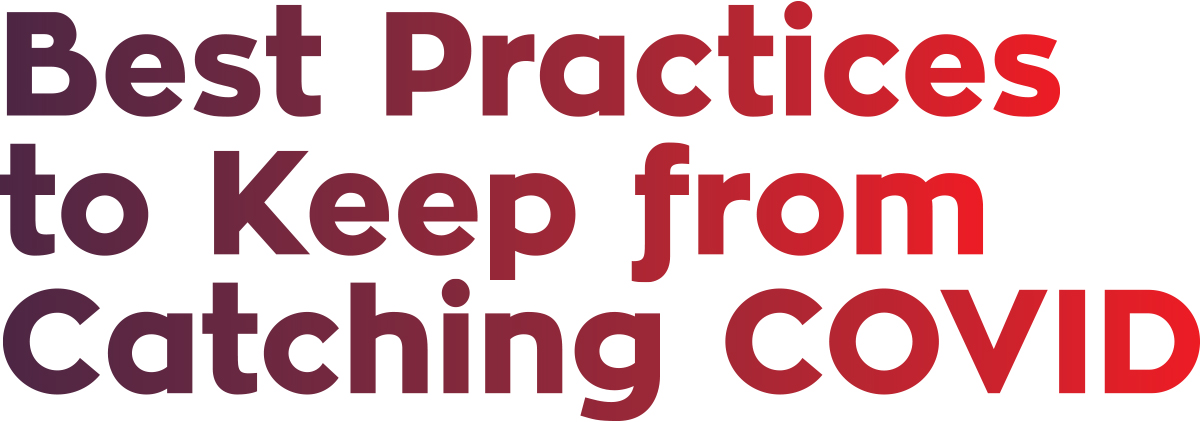

mega 3s! A lot of studies have shown that when you have adequate or high amounts of Omega-3 fatty acids in your system your survival rate for COVID goes up. It’s important to get your immune system in shape so that if you do contract COVID, you will get through it just like any other cold, flu or virus that you’ve survived. Eating healthy foods like chia, flax and other seeds, walnuts, and almonds that are high in omega fatty acids, are what you need in your regular diet.
Many ascribe to fish oil as a source for Omega-3, but that’s not optimal. Fish get Omega-3 fatty acids from eating algae, which means you get it second-hand. The best way to ingest Omega-3 is through a direct source; not second or third hand.

my role as the executive medical director for Advent Health Hospice, Central Florida, we were very attuned to the COVID quarantine situation. Whereas the hospital would not allow any visitors to see their loved ones at any point or time, especially last spring and summer, we intentionally did all we could to at least allow one or two family members to be present for certain periods of time. We were sensitive to the reality that the chances of someone with COVID coming away from the hospital without serious issues, if they made it out at all, were very slim. So we wanted to make sure that families had the opportunity to hold a loved one’s hand, or say goodbye.
When there’s a sudden death, or a death where someone is unable to participate by saying goodbye, people can experience, what we call, complicated grief. When you’re already grieving for a loved one, and you don’t get that opportunity to say goodbye, that type of grief can really affect your day-to-day activities and keep you from participating in normal living. Sometimes people are not able to work because of depression or anxiety. That’s why it’s called complicated grief. The upside of hospice is that it automatically offers bereavement services for situations such as that.
Whether COVID, cancer, a car accident, or whatever is the catalyst, families need to have conversations about end of life expectations, because it’s inevitable? The greatest gift you can give to family members is completing advanced directives so they will know your wishes should any health issue befall you. Many people don’t want to be on a ventilator. Many people don’t want a feeding tube. But if they have not articulated that in writing, and you haven’t had the chance to tell them what you would want, it’s left up to side conversations you may have had with a loved one who, oftentimes, doesn’t want to discuss that. We want our loved ones to stay around and we want to do everything possible to keep them here. So, it is truly a gift when family members sit down and fill out advanced directives forms, telling others what you want or don’t want at the end of life.
Your doctor may have the forms in the office. Attorneys may have them, as well. After completing the form, make several copies. Keep a copy at home, give one to your primary physician, one to your attorney, one to a trusted relative, and whomever else you feel needs to have a record of your wishes.


ecently I did something I have not done in the past 10 months; I hugged my very special 84- year-old mother-in-law and kissed her on her cheek. You may wonder how I justified doing this, since this article deals with living with COVID and best practices to prevent catching the virus. Well, both of us had been vaccinated with the last of the two doses of the Moderna vaccine two weeks prior. We had reached 95% protection and, with her permission, I felt safe doing this.
Let me be clear. If you have not received the Pfizer or Moderna vaccine, you are at a high risk of catching the SARS-CoV-2 virus which causes COVID-19 disease. So if you want the joy that I had in showing affection to a loved one, this is the article for you.
Let us unpack the very important subject of not only surviving COVID, but also lowering your daily risk. Here are four important things we can do, immediately, to live with COVID now and protect ourselves from this deadly virus and it’s variant:
- Wear a mask. The reality is that for the foreseeable future masks will be in vogue in this country. The N95 mask is the gold standard. Double masking with a surgical mask, although not as yet recommended by the CDC, is more protective.
- Social distance. Since people can spread the virus before they know that they are sick, physical distancing of at least six feet is very important.
- Get vaccinated. Get the vaccine as soon as it is available for you. Yes, you will still have to follow the above two recommendations, but you will feel a sense of protection and relief.
- Strengthen your immune system. A healthy immune system is essential for survival. Please consider a vegan or, at least a vegetarian diet. Supplements of vitamins C, D and Zinc are also recommended by many medical professionals.
Recent publications from the CDC show the number of new COVID-19 cases in the US declining to levels last seen before the Thanksgiving and Christmas 2020 holidays. This is a long-awaited trend. However, some in the medical community have voiced a warning that COVID may really never go away. We may have to get yearly vaccines like we do with the flu. Therefore, it is important to know these best practices and, more importantly, to follow them.

e have had amazing advances in medicine. In the past few years, especially in the realm of genetics, the human genome was completed [in 2003], and the scientific community agreed to share that knowledge.
When I was studying in a lab a number of years ago, we would study proteins, very laboriously. It would take days to figure out what we needed to know about, or whether it was a cancer gene. Since then computers are able to spit out information that would normally have taken days or weeks, in a fraction of the time. So the research that went behind the mRNA vaccines had already been going on, I believe, for about 10 or 12 years and had even been tested in other vaccines.
When the SARS-COVID II became known in late December 2019 or January 2020, and was actually sequenced in China, within one or two days—or even hours—scientists at the NIH and in the Moderna lab were able to figure out what part of the virus encoded the spike protein. Within weeks they were able to get a vaccine past the animal phase and into phase one and phase two trials. When they completed phase three trials, they [were] getting enough information at the end of December 2020 to get the emergency use authorization. While it was an amazing feat, it’s backed by years of preparation, which met the challenge.

eware of the Asymptomatic Spreaders. I’m very strict about hand washing, and very strict about wearing my N95 mask. I don’t wear the surgical grade masks, unless I use them with the N95 mask. That’s what has protected me.
Most people who spread the COVID-19 virus are asymptomatic people who are so confidently healthy, that you don’t even suspect they have it. Those are the ones that I really protect myself from—people who don’t think they have it.
We know to stay away from sick people who are coughing and have high fevers and other noticeable symptoms. But they aren’t the majority of spreaders. And that’s why we really have to take the vaccine.
Anybody that comes into my practice with COVID-positive test results, I immediately prescribe aspirin to reduce their blood clotting. We now know that cardiac heart attacks, strokes, and even neurological Parkinson-like problems are big, long-term complications with COVID, so taking aspirin for six months will reduce some of these long-term effects.
But I’m advising my family members to get the vaccine to decrease their chances of getting COVID. The key to not experiencing the long-term complications described above, is not getting COVID.